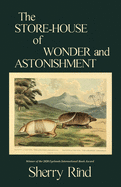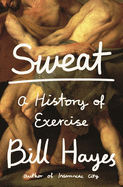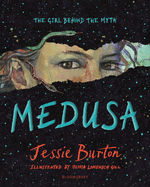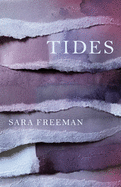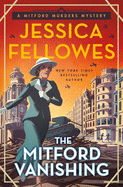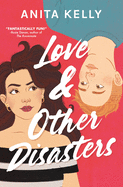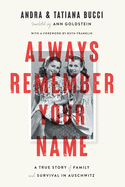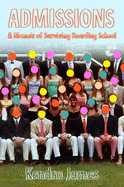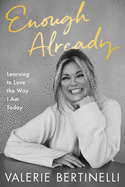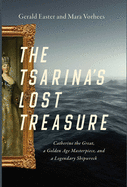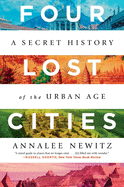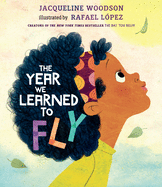Tuesday, January 18, 2022
Children's literature has never experienced a dearth of adorable animals. In this lovely tradition, these charming board books highlight dogs.
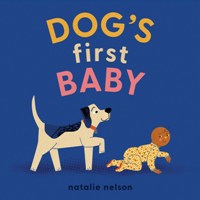 In Natalie Nelson's Dog's First Baby (Quirk Books, $9.99), a happy pup meets the family's newest member. "I am a dog. Are you a dog?" The new creature doesn't smell like a dog and doesn't even have a tail. But it does get sleepy, go for walks and howl. The dog ultimately decides the creature is not a dog but considers it a friend anyway. A bright palette, tons of white space, simple shapes and easily recognizable figures make this an excellent title for children ages two to five.
In Natalie Nelson's Dog's First Baby (Quirk Books, $9.99), a happy pup meets the family's newest member. "I am a dog. Are you a dog?" The new creature doesn't smell like a dog and doesn't even have a tail. But it does get sleepy, go for walks and howl. The dog ultimately decides the creature is not a dog but considers it a friend anyway. A bright palette, tons of white space, simple shapes and easily recognizable figures make this an excellent title for children ages two to five.
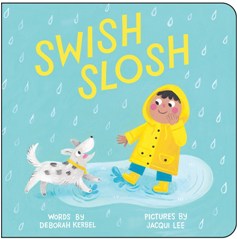 Swish, Slosh (Orca Books, $10.95) by Deborah Kerbel and illustrated by Jacqui Lee is an onomatopoeic encyclopedia in the form of a board book. A child and their dog spend the day together, doing all kinds of activities: an unsupervised hose ("gloop/ gush") turns the dirt to mud and the child and dog jump right in ("smush/ squish"); when it's time to paint, the child uses an easel ("squelch/ splat") and the dog walks all over the canvas ("swoop/ splurt"). The only text in the book is the noise associated with each energetically illustrated activity, making this an excellent read-aloud.
Swish, Slosh (Orca Books, $10.95) by Deborah Kerbel and illustrated by Jacqui Lee is an onomatopoeic encyclopedia in the form of a board book. A child and their dog spend the day together, doing all kinds of activities: an unsupervised hose ("gloop/ gush") turns the dirt to mud and the child and dog jump right in ("smush/ squish"); when it's time to paint, the child uses an easel ("squelch/ splat") and the dog walks all over the canvas ("swoop/ splurt"). The only text in the book is the noise associated with each energetically illustrated activity, making this an excellent read-aloud.
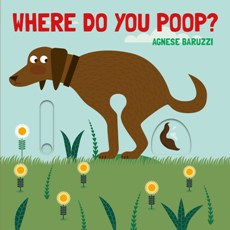 Special mention goes to Where Do You Poop? (minedition, $11.99) by Agnese Baruzzi, a slide-the-tab board book featuring a pooping pup on the cover. Every animal in the book is asked, "And where do YOU poop?" on the left-hand page; the right-hand page includes an illustration of the animal with a pull tab to make the poop appear. It seems unlikely any one- to three-year-old wouldn't enjoy this silly, interactive and surprisingly educational board book. --Siân Gaetano, children's and YA editor, Shelf Awareness
Special mention goes to Where Do You Poop? (minedition, $11.99) by Agnese Baruzzi, a slide-the-tab board book featuring a pooping pup on the cover. Every animal in the book is asked, "And where do YOU poop?" on the left-hand page; the right-hand page includes an illustration of the animal with a pull tab to make the poop appear. It seems unlikely any one- to three-year-old wouldn't enjoy this silly, interactive and surprisingly educational board book. --Siân Gaetano, children's and YA editor, Shelf Awareness
Tides
by Sara Freeman
Sara Freeman's Tides is a sparse and unconventional novel of one woman's undoing--and knitting herself back together again in the most unlikely of ways.
The woman herself is unimportant at first. She remains unnamed, until Freeman reveals in a passing dialogue that her name is Mara; she is unmoored, until snippets of her past start to come back to her in memory and in conversation. This is how Mara is defined across the pages of Freeman's staggering debut, not by what she is, but by what she is not: "this is not that," she says time and again.
And yet, as Mara tries to remain aloof and alone, she is slowly knit into the fabric of the new community where she has landed, an off-season seaside town that offers her a harsh and unforgiving refuge, and reminded of the fabric of her past. As Mara asks, so does Freeman pose to her readers: Is it possible to isolate one's present from one's past? Or is the past a tide unto itself, ebbing and flowing each day, each season?
Tides unfolds across a series of vignettes, some as short as a sentence or two, some wending across pages. This pace is somewhat disquieting at first, though it eventually settles into a rhythm that feels like time itself. The beauty of Freeman's prose lies as much in this unexpected cadence as in the contrast between beauty and harshness tucked into every page. In its poetic unfolding, Tides reveals itself to be a stunning and revelatory tale. --Kerry McHugh, freelance writer
Discover: In this stunning debut novel, a woman's life unravels, builds and unravels again across a series of sparse and staggering vignettes.
Mystery & Thriller
The Mitford Vanishing
by Jessica Fellowes
It's a spectacular concept: when Jessica Fellowes's Mitford Murders series (The Mitford Scandal) is complete, each of six mysteries will center on one of England's six Mitford sisters, who courted fame and controversy in the early and mid-1900s. So inspired is Fellowes's concept that it would seem almost greedy to ask that her books be splendidly written and ingeniously plotted, but this is exactly what readers of The Mitford Vanishing, the fifth title in the series, can expect.
The novel finds Louisa Sullivan, the Mitford family's former nursery maid-turned-cofounder, with her husband, of a London detective agency, on their first assignment. The couple has been hired by Lord and Lady Redesdale to locate their 19-year-old daughter, Jessica--the fifth of the six Mitford girls and a "Bolshie," as her sister Nancy puts it. (She eventually wrote the classic The American Way of Death.) Eleven days earlier, the Redesdales had put Jessica on a train to Dieppe, France, with the understanding that she would embark on a motor tour with friends, but this is not the path their daughter follows.
Set in 1937, The Mitford Vanishing sifts through the politics of the prewar period and explores how ideological differences can destabilize families, but it all goes down as easy as the chocolat chaud that Louisa and her husband, hot on Jessica's trail, enjoy in Dieppe. Fellowes bases some aspects of her novel on Mitford family history, but the feminist Louisa is a marvelous invention, a working mother equally at peace with her "downstairs" heritage and her "upstairs" ambition. --Nell Beram, author and freelance writer
Discover: In the scintillating fifth book in the Mitford Murders series, private detective Louisa Sullivan is hired to search for Jessica Mitford, the fifth of the six famous English sisters.
Romance
Love & Other Disasters
by Anita Kelly
Anita Kelly's skillful character work, gentle humor and insightful relationship development are center stage in Love & Other Disasters. This queer romance is set on a cooking competition show and features two characters in their 20s, both vying for $100,000 and the chance to prove themselves. Recently divorced Dahlia Woodson is in debt and in a rut, so she quits the job and town she doesn't love for a chance to pursue her culinary dreams. London Parker is the first nonbinary contestant on Chef's Special and while they love cooking, they're hoping to use the prize money to launch a nonprofit for LGBTQ+ kids in their hometown of Nashville.
Kelly deftly balances the romance and individual character arcs and gives readers enough time with the cooking show to up the tension without allowing it to overshadow the romance. Dahlia's energetic and emotionally free personality complements London's steadier countenance, and Kelly insightfully highlights the way Dahlia and London admire and value their differences. Though they never compromise their own efforts, they support each other personally and professionally, their friendship growing on pace with their romance. London's privileged upbringing leads them to have unfair expectations of Dahlia, and both of them are afraid of getting attached when they could be kicked off the show in just a few days.
Love & Other Disasters is by turns funny, sweet and hot, but Anita Kelly's emotional river runs deep--this romance will stay with readers long after they've turned the last page. --Suzanne Krohn, librarian and freelance reviewer
Discover: A cooking competition heats up as two queer amateur chefs fall for each other in this deeply emotional yet buoyant romantic comedy about finding love and self.
Biography & Memoir
Always Remember Your Name: A True Story of Family and Survival in Auschwitz
by Andra Bucci and Tatiana Bucci, transl. by Ann Goldstein
The horrors of the Holocaust cannot be overstated, but for Andra and Tatiana Bucci, two Italian sisters who were imprisoned at Auschwitz as children from 1944 to the end of the war the following year, their tragic immersion in the daily reality of death and suffering became shockingly commonplace. "Death is everywhere around us," they write in Always Remember Your Name, their haunting and deeply affecting memoir of their time in the infamous Nazi death camp. "And yet, strangely, we're not afraid of it, and we quickly get used to this parallel reality.... We play around what Tati calls the 'pyramids of corpses': white, skeletal, striking." It wasn't until they were freed and reunited with their parents, who also miraculously survived, that they began to comprehend what they had endured and, as much as possible, to recover from it and build lives for themselves.
Using the plural first-person "we" as the narrative voice, the sisters recount their experiences during and after the war, creating a profoundly personal account of unimaginable trauma that combines their sometimes fuzzy childhood memories with adult knowledge and wisdom. The book's title comes from the girls' mother, who found ways to visit them in the early months of their confinement and always made them repeat their full names--both for practical reasons and as a way to retain their identities in the face of routine indignities. Now in their 80s, the sisters continue to educate others on the realities of what they endured, which feels ever more vital as fewer and fewer survivors remain. --Angela Lutz, freelance reviewer
Discover: In this haunting and deeply affecting memoir, Italian sisters Andra and Tatiana Bucci recount their imprisonment as children in Auschwitz and their experiences as survivors after the war.
Admissions: A Memoir of Surviving Boarding School
by Kendra James
Kendra James spent the first few years of her professional career recruiting diverse students for elite prep schools. As the graduate of an independent school herself--the first legacy African American student at the Taft School in Watertown, Conn.--James began to have mixed feelings about promoting the prep school experience to Black and brown kids, having survived countless racist comments and micro-aggressions during her years at Taft. Her reflections on her educational experience led her to write Admissions: A Memoir of Surviving Boarding School.
Micro-aggressions at school--including a roommate who constantly complained about how smelly James's hair products were, and a "friend" who got the school administration involved over a missing $20 bill--meant James always had to be alert and ready to defend herself. As James shares now, she doesn't plan to offer her kids the same educational experience she had, because "that feeling of being the Only One isn't something I will be able to shield my kids from, but I certainly don't have to actively seek it out for them."
With wit and insight, Admissions explores the kind of upper-class education that most Americans have seen only in movies. James analyzes the racist attitudes she had to deal with, tells funny stories of her nerdy ways and fondly recalls the days of AIM chats. People of color who survived mostly white schools are sure to sympathize with James's experiences, but anyone will enjoy her perceptive storytelling. --Jessica Howard, bookseller at Bookmans, Flagstaff, Ariz.
Discover: This intriguing memoir chronicles the experiences of a Black student at an exclusive, and mostly white, New England boarding school.
Psychology & Self-Help
Enough Already: Learning to Love the Way I Am Today
by Valerie Bertinelli
Enough Already begins as a self-help guide for those who want to get off the serial dieting treadmill and learn to love their imperfect selves. But it quickly turns into a remarkably empowering and deeply personal memoir as Bertinelli (Hot in Cleveland) bares family secrets, her battles with poor self-esteem and bad body image.
Enough Already covers Bertinelli's nearly two-year journey toward self-acceptance. During this period, she also deals with the Covid-19 quarantine and the news that the tongue and throat cancer her former husband, rocker Eddie Van Halen, has been dealing with for more than a decade has spread to his lungs and brain. Although the two divorced in 2007 (after 26 years together), they stayed close to co-raise their son. A large part of this memoir deals with grief and impending loss. "I was literally born into grief," writes Bertinelli, who was born a few months after her brother accidentally drank poison and died at 17 months old. "I didn't learn about it until I was in my early teens." With Van Halen's health declining, Bertinelli tries to break out of the crippling emotional restraint she was raised to exhibit. The chapter dealing with his eventual death is heartbreaking, nakedly honest and eloquent. "Grief is one of those things you have to wade into and expect to cry your way to shallower waters," she writes.
This soul-searching and heartrending memoir will empower people dealing with grief and those who need to live healthily while breaking the tyranny of the bathroom scale. --Kevin Howell, independent reviewer and marketing consultant
Discover: Valerie Bertinelli delivers an empowering, deeply personal and emotionally devastating memoir of grief and family secrets with a path toward self-love.
Health & Medicine
Sweat: A History of Exercise
by Bill Hayes
For Bill Hayes (How We Live Now; Insomniac City), the human body is a source of endless curiosity and delight. His earliest books (Sleep Demons; Five Quarts; The Anatomist) form a captivating library of historical research--on the subjects of sleep disorders, blood and anatomy--filtered through his own experiences. This makes Sweat: A History of Exercise an appealing, essential addition to the shelf.
Sweat is a brisk and amiable stroll through the history of vigorous activity. Hayes brings his resilient good nature and charming candor to the page, writing both from farflung, international research and considerable practice in arenas of swimming, running, boxing, weightlifting. He is struck, in particular, by one of the original studies of exercise: the 16th-century text Gymnastica by Girolamo Mercuriale, whose scholarship caught the attention of powerful men like Cardinal Alessandro Farnese and Holy Roman Emperor Maximilian II, and made him the personal physicians to both in due time. But it's not just ancient texts that interest Hayes: Jane Fonda's Workout VHS and other modern wonders get their due as well.
For many, exercise can be a topic littered with insecurity, but Hayes circumvents pitfalls of intimidation by showcasing numerous eclectic fitness routines people have developed (church bell ringing, anyone?). He also writes frankly about his own relationship to fitness, its ebbs and flows, injuries and recovery periods. Throughout, he makes clear that to be embodied at all is magnificent. Whether in a library, a gym or the Grecian ruins of an ancient locker room, Hayes captures the majesty of bodies in motion. --Dave Wheeler, associate editor, Shelf Awareness
Discover: Brisk and eclectic, Sweat surveys the many wonders of exercise, from ancient arenas to modern gyms.
Poetry
The Store-House of Wonder and Astonishment
by Sherry Rind
In her learned and mischievous fourth collection, The Store-House of Wonder and Astonishment, Seattle poet Sherry Rind (Between States of Matter) ponders classical and medieval attitudes toward animals.
Rind quotes frequently from Ovid and Pliny in poem epigraphs as she records ancient natural history theories that have since been debunked. For example, Aristotle, unaware of birds' continent-crossing migrations, assumed they hibernate underwater: "Although fishermen may dredge hibernating swallows/ from the depths, the birds soon die/ if awakened before their time," from "Aristotle on the Disappearance of Birds."
"Paradise" describes the island wildlife discovered by Spanish and Portuguese explorers. Other topics include the lack of reptiles in Ireland, a first-century plague of rabbits, and legends of the phoenix. "Elephants, Their Capacity" is one of two poems that imagine what elephants would say to people: "Because you fear our size/ you diminish us." Indeed, a recurring theme is how humans have exploited other species--everything from beavers to toads--for food or medicine over the centuries.
Moving between chastening and celebratory modes, the verse tells stories of connection. One standout, "The Kinde of Hyaena Called Papio," mimics a 16th-century letter recounting a moment of kinship with a monkey in a German park: "You know I keep many animals, but never have I felt I was looking into their faces as one equal to another, on the very edge of words."
Countering the archaic or biblical view of nature "as a store-house of resources provided by a creator for the benefit of human beings," Rind appreciates the creatures in Earth's treasure trove for their own sake. --Rebecca Foster, freelance reviewer, proofreader and blogger at Bookish Beck
Discover: Sherry Rind's playful set of poems explore the relationships between humans and other species, with connection posited as a better model than ancient models of exploitation.
Now in Paperback
The Tsarina's Lost Treasure: Catherine the Great, a Golden Age Masterpiece, and a Legendary Shipwreck
by Gerald Easter and Mara Vorhees
The Tsarina's Lost Treasure: Catherine the Great, a Golden Age Masterpiece, and a Legendary Shipwreck is ostensibly the story of the ill-fated Vrouw Maria and its precious cargo, but Gerald Easter and Mara Vorhees use the framework of the ship's disaster to recount a saga that spans from Rembrandt to Vladimir Putin. Easter (Capital, Coercion and Post-Communist States) and Vorhees (Lonely Planet: Finland) combine their political and travel expertise in a fascinating tale.
Gerrit Dou, one of Rembrandt's best pupils, created a beautiful painted oak triptych called The Nursery, the most sought-after piece of art among Golden Age collectors. A century later, as Catherine the Great solidified her power and expanded Russia's art collections, her "compulsion to collect and obsession to outbid inadvertently helped to redefine the relationship between art, power, and people in the modern world." When Dutch art collector Gerrit Braamcamp died in 1771 and The Nursery came up for sale, Catherine pounced. Her agents purchased The Nursery and loaded it aboard the Vrouw Maria, only to have the ship founder off the Finnish coast in the Baltic Sea. There it lay for 228 years, until a Finnish wreck-diver found it in 1999.
The Tsarina's Lost Treasure reads almost like fiction as Easter and Vorhees explore the many figures involved in the historical shipwreck, as well as the modern oligarchs and academics battling in the courts for the rights to the treasure. Readers of historical fiction, true crime or history books are all sure to enjoy The Tsarina's Lost Treasure. --Jessica Howard, bookseller at Bookmans, Tucson, Ariz.
Discover: This fascinating history connects a ship carrying a priceless Dutch artwork that sank in the Baltic Sea on its way to the court of Catherine the Great with current-day Russian bosses and academics.
Four Lost Cities: A Secret History of the Urban Age
by Annalee Newitz
In Four Lost Cities: A Secret History of the Urban Age--named an NPR Best Book of the Year--science journalist and science fiction novelist Annalee Newitz (The Future of Another Timeline) leads readers on a fascinating exploration of the rise and fall of cities that were abandoned by their inhabitants. She focuses on four of the most spectacular examples: the Neolithic city of Çatalhöyük in central Turkey; Roman Pompeii; Angkor Wat in Cambodia; and the pre-Columbian city Cahokia in modern Illinois near the Mississippi River. In the process, Newitz considers why cities fall, the powerful trope of the "lost city" and what we can learn from the failure of these cities.
The exploration is literal: Newitz visits the ruins of the four cities and meets with archeologists involved in cutting-edge work related to each. Some of the most interesting sections of the book deal with archeologists using new technologies and asking new questions of familiar sources to look beyond the spectacular remains and the leaders who ordered their construction and study the lives of each city's general population.
Newitz makes a convincing argument that while the four cities were very different culturally, they shared common failures resulting from prolonged periods of political instability coupled with environmental crisis--failures that speak to our present. But Four Lost Cities is not a dystopian warning for an age of global warming. Instead, Newitz offers an appealing combination of travel account, historical narrative, hard science and hope. --Pamela Toler, blogging at History in the Margins
Discover: Four Lost Cities offers a fascinating look to the past for clues about how cities grow and fail.
Children's & Young Adult
Medusa
by Jessie Burton, illus. by Olivia Lomenech Gill
Jessie Burton (The Miniaturist) reimagines Greek myth in her first title for teens, the bold, empowering and atmospherically illustrated Medusa.
Four years have passed since Athena cursed Medusa, turning her hair to snakes. "Woe betide any man fool enough to look upon you now!" Athena warned, not explaining further. Medusa fled to an island with her sisters, where they remained alone--until Perseus sails ashore. The lonely, 18-year-old Medusa "wants to eat him up like honey cake," but she convinces him to keep his distance as they talk. He reveals that he's on a mission to stop a king from forcing his mother to marry him. Medusa has a similar story: "her own space... [was] invaded inch by inch by a man." For the first time, she wants to share that story, but she worries about how her desperation to feel understood makes her so willing to trust a stranger.
A fiercely feminist undercurrent fuels Medusa's unflinching voice. Her experience encapsulates the way sexual assault victims are blamed by others ("Flaunting her curves all right, but won't give him what he wants") or themselves ("Had I been doing anything to provoke him?"). Medusa is working to reclaim her body and agency--to let herself love a boy who makes her laugh for the first time in years. Burton's hard-hitting lyrical prose is accompanied by stunning artwork by Olivia Lomenech Gill (Fantastic Beasts and Where to Find Them illustrator) that is reminiscent of vintage seafarers' sketchbooks. Medusa has a fervent, fortifying message: everyone deserves to carve and keep their own space in this world. --Samantha Zaboski, freelance editor and reviewer
Discover: An 18-year-old Medusa wrests control of her own story in this necessary reimagining of the Greek myth for YA readers.
The Year We Learned to Fly
by Jacqueline Woodson, illus. by Rafael López
In the dynamically illustrated and poetically written The Year We Learned to Fly, the second picture book from author-illustrator team Jacqueline Woodson and Rafael López (The Day You Begin), a wise grandmother instills in her two Black grandchildren ways to overcome obstacles both large and small.
Woodson's text uses phrasing that repeats with every new challenge: "That was the spring when the rain seemed like it would never stop"; "That was the summer we learned to fly." Their perceptive Grandmother acknowledges that the rain makes them bored and says, "Somebody somewhere at some point was just as bored as you are now." The children use their imagination to escape the apartment and fly over the city. When they fight in the summer, Grandmother says, "Somebody somewhere at some point was just as mad as you are now." Again, the siblings take flight. By autumn, the children know that they don't "have to be stuck anywhere anymore." At this point, Grandmother explains that she learned to fly from the people who came before--the ancestors who were chained and brought here on huge ships: "Somebody somewhere at some point had to figure out they could fly."
Woodson states in her author's note that this story was inspired by Virginia Hamilton's short story "The People Could Fly," illustrated by the remarkable Leo and Diane Dillon. Woodson's expressive text makes each ordeal realistic and accessible, even as the stakes get higher. López's mixed-media art matches Woodson's tone, his figures realistic even as the landscapes become dreamy and fantastical. As with The Day You Begin, this picture book manages to entertain, educate and inspire with the lightest of touches. --Siân Gaetano, children's and YA editor, Shelf Awareness
Discover: A clever grandmother teaches her grandchildren how to fly in this tenderly written and brightly illustrated picture book from the team behind The Day You Begin.


